Sumerian culture that valued the literacy
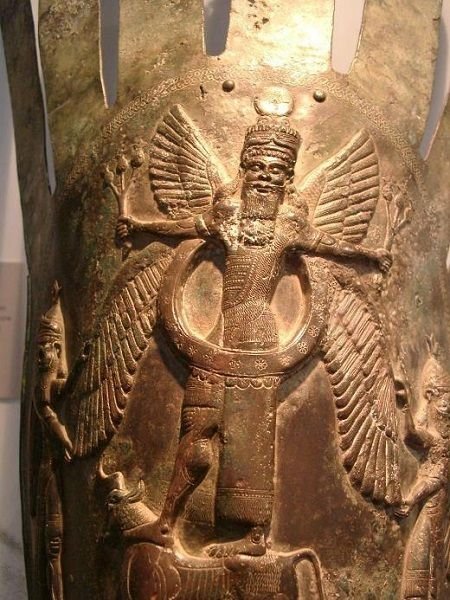
Sumer is one of the most ancient civilizations on earth. It is well known that the Sumerians began to build cities and roads 7,000 years ago. They are among the first in the history of mankind to give up tribal housing and start building real homes. Today we have some artifacts from their ancient culture, but that's part of what scientists have discovered today.
Did Women Have Their Own Language?
The men and women in Sumer were not equal. Even the rich families who sent their children to study only studied their boys and the girls stayed at home. Thus women began to speak in their own language, called "emzal". Men spoke to the official - "emigrate."
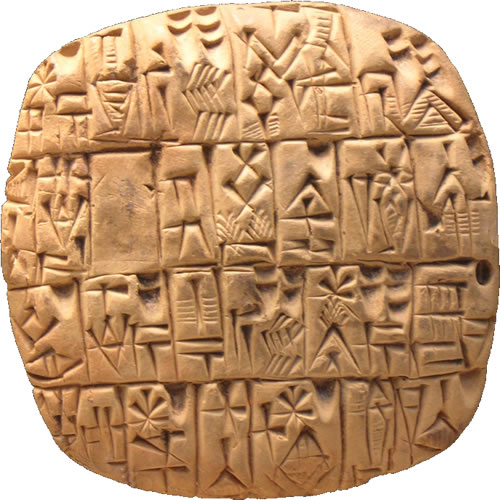
The Sumerians paid levies before the money came in
The Sumerians paid taxes to their rulers, even before the first coins and silver shekels appeared in Mesopotamia. Instead of money, they gave a percentage of the produced goods - mainly agricultural products or meat. There is a very curious feature here - rich people pay a much higher levy than the poor - not just because of the percentage on the larger quantity of commodity, but also over that. Participation in different public affairs was also considered to be a levy. Every month, for example, men, heads of households, are obliged to work on a farm, dig up irrigation canals, or fight - all obligations related to the common good. Of such charge, only very wealthy people could be redeemed because of illness or other legitimate reason.
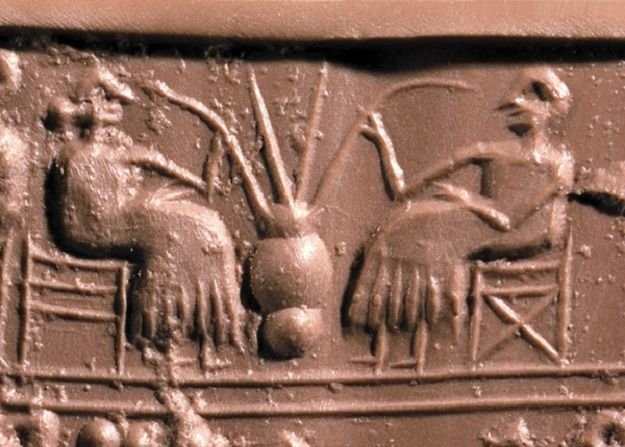
Life was spinning around ... beer
There is a theory that civilization has left ... beer! It was an important part of Sumer's life. But it doesn’t look like a modern beer. Consistency resembled more mess, with a large sediment at the bottom, a large layer of foam at the top, and floating grains. You will be surprised that this "thing" was even considered a ... nutritious breakfast. Often it happened to pay men with a beer.
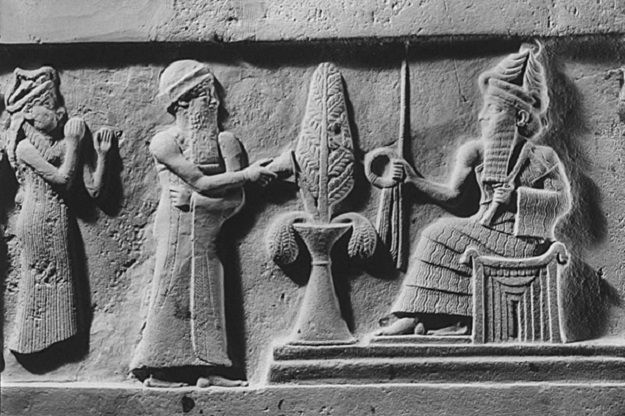
The Sumerians used opium
Beer wasn’t the only thing for "relaxation". The Sumerians used opium made from the poppy seed. There has been evidence of this since 3000 BC. Opium was called the "plant of joy". In fact, it is not about drug addiction because the Sumerians knew the qualities of opium as painkillers and used it in medicine.
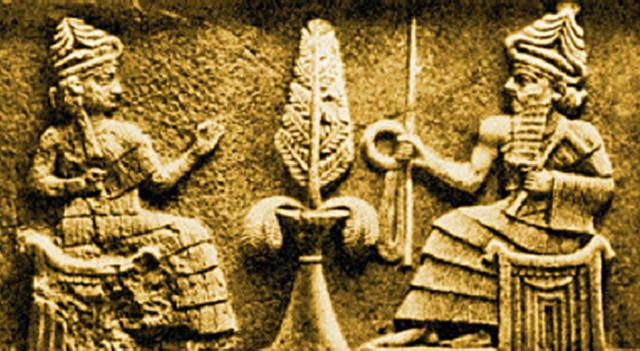
The manager changed his wife every year
Each year the leader married a new woman. He had to choose among the priestesses-that’s how they called the virgin girls. They had to have a perfect body, "prepared for love". The governor and the bride chosen by him, according to the Sumerians, should "rejoice the gods." On the wedding day the preparation of the bride included bathing, massage with sweet oils and dressing in beautiful robes. The leader and his retinue went solemnly to the temple where they left the girl waiting for him. The temple was full of priests and priestesses who sang songs praising love. The leader offered presents to his future bride, and they headed to a room with a ceremonial bed, where the two of them immediately took up their love affairs. The crowd outside joyfully screamed to announce the event in a loud voice. All this is repeated every year as a great universal holiday.
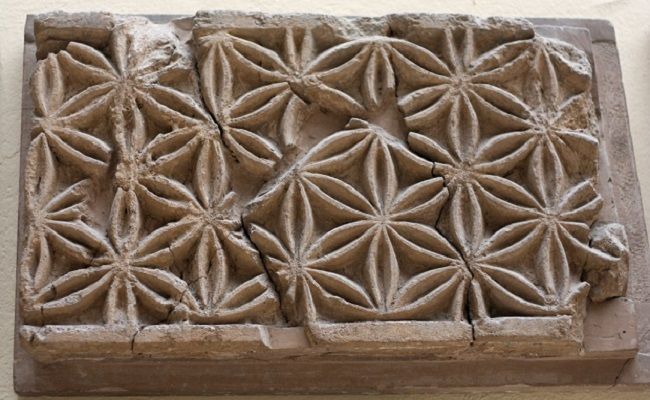
Priests were not just "harem," but doctors and dentists
The priests were considered to be the most useful people in Sumerian society. Besides the leader's potential brides, they were trained to provide medical care. Among the male priests, they are the first doctors in history, many poets, scribes, and other clever people. Sumerian cities have always been built around a temple. In the center were the Great Hall, and the buildings around it were intended for priests and priestesses. Their space consisted of 1 / 3th of the whole area of the city and was not meant only for ceremonies. For example, the sick people came there to get help from the priestesses - their homes were something like modern hospitals. Literacy was considered wealth. In Sumer, traders and farmers were considered "inferior caste". If one of them became rich and wanted to be a priest or a leader, the condition was not only to be rich but also literate! Only the children of the rich went to school. There they studied mathematics, history, and literacy, whatever that meant.
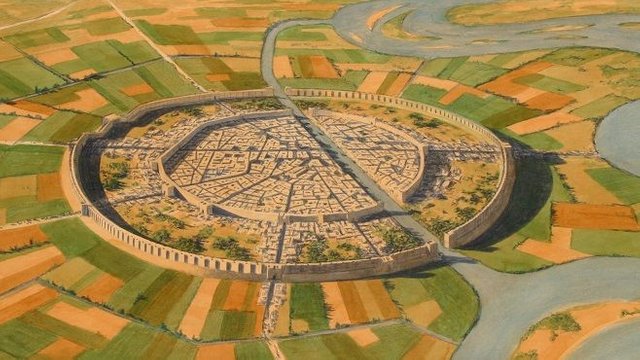
The poor lived behind the city
The majority of Sumerians were poor and lived in farms behind the city. While the rich had clay houses with windows and lamps, the poor were satisfied with reed tents. Spend straw directly on the ground. All their lives went to work - mostly in agriculture, and it was considered to be a gain when somebody could buy more land.
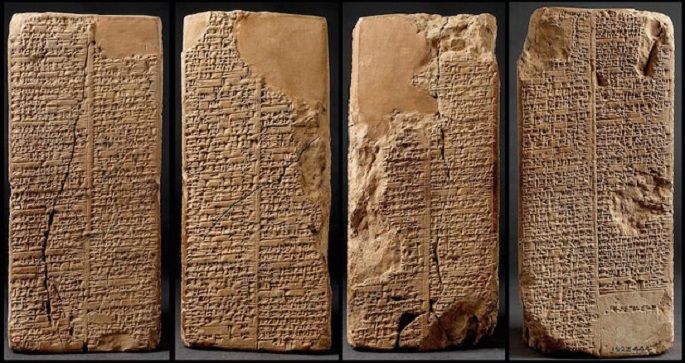
The Sumerian Tablets
The Sumerians had a strong army. There was an option to redeem the freedom, but few went there. Interesting is the fact that the Sumerians turned into slaves and their own when one of them couldn’t go back or commit a crime. They did ritual funerals. The Sumerians accepted death as a sacrament. They called the Hereafter "land without return," and believed that it was in that world that they would receive all the goods that fate had not given them in life. The dead were honored with golden ornaments, food and other gifts, among which some strange – like - favorite dogs. They did this with the thought that the dead wouldn’t be alone and hungry in that world. The rulers were often buried with all their servants and courtiers, and sometimes with their whole family. So the life of the ruler was kind to his companions, no less than their own lives.
You received a 10.0% upvote since you are not yet a member of geopolis.
To read more about us and what we do, click here.
https://steemit.com/geopolis/@geopolis/geopolis-the-community-for-global-sciences-update-2-higher-base-votes-new-logo
If you do not want us to upvote and comment on your posts concerning earth and earth sciences, please reply stop to this comment and we will no longer bother you with our love ❤️
Sumerians are very interestin' culture.
I like that type of posts. Thanks for sharing your knowledge mate
Glad to hear that, hehe :) Cheers! :)
Good information about culture
Thanks :)
WOW... sooo interesting !
Thank you for the great Information.
You are welcome :)
Sumerians; literature, art, architecture, politics and astronomy in the fields of human history is a very important civilization. Other great civilizations in the Middle East (Babylonian, Akad, Urartu, Hittite). Egypt and Ancient Greek civilizations made great progress in each area during their period.
Very true :)
Thank you for your interesting article.
You are welcome :)
all people love to travel, keep sharing. please check my post related to travel if u want..
Sure :)
This post has received gratitude of 5.50 % from @appreciator thanks to: @godflesh.
Thanks :)
@godflesh, Great article.It seems the Sumerian culture was set up mostly to benefit the Leader and the elites of that time. A sexy wife every year,what happened to the previous ones.Levies in foods,drinks,meat,fine clothes.Beer so the people would drink and forget their sorrows not forgetting Opium.Promise of a better life after death so the poor(which are a majority)would not rebel against the excesses of the elite few.Finally the mandatory death of the servants of the leader when he dies so he would have company in the hereafter.Am sure most of the Politicians of today would prefer to live in that time period.
Very interesting article. I learned some new aspects of the life of the Sumerians at their times. Maybe that we soon have the same economic experiences that they had regularly when debts had been on too high levels. So after thousands of years we are not very much smarter than they have been. Therefore it is time to learn more from past to have a better future. Especially in economics we would learn more from the Sumerians than they could learn from us. I think they would be very scared if they would see our culture in the year 2018.